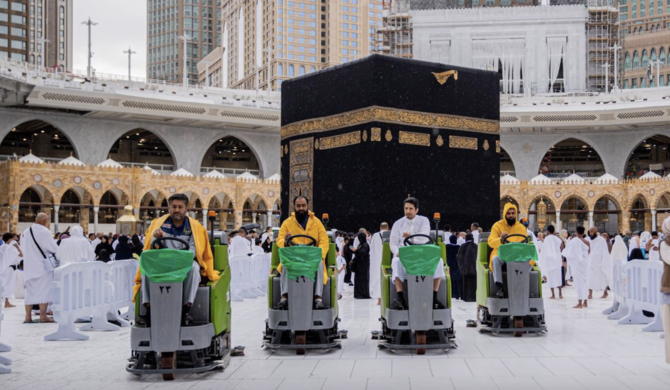RIYADH: Red Sea Global, the developer behind the flagship regenerative tourism destinations The Red Sea and AMAALA, announced on Tuesday the rebranding of its latest brand, Botanica.
Previously known as The Red Sea Landscape Nursery, Botanica is dedicated not only to supplying sustainable greenery across RSG’s developments but also to offering guests immersive, nature-based experiences.
Operational since 2020, Botanica has already grown and supplied more than 7 million plants to landscape RSG’s destinations, with ambitions to deliver 30 million plants by 2030.
From this month, it opens its doors to guests at The Red Sea, AMAALA, and beyond, offering a new way for visitors to engage with the natural environment.
“Botanica is more than just a nursery, it’s a step toward regenerating Saudi Arabia’s rich biodiversity,” said John Pagano, group CEO of RSG.
“After providing us with more than 7 million plants for landscaping our destinations, the nursery now becomes our first guest experience that caters uniquely to the RSG DNA of regenerative tourism. Visitors have the opportunity to enjoy immersive, hands-on experiences that reconnect them with nature,” he added.
Guests visiting Botanica can explore the nursery through guided tours, participate in planting their own flora, and enjoy refreshments at the Botanica Cafe, which serves breakfast and lunch.
They can also visit a garden shop and a tropical area.
Covering over 1.8 million square meters, Botanica is the largest landscape nursery in the region. The nursery also plays a significant role in supporting the local economy, with around 400 people employed on site, 25 percent of whom come from nearby communities.
Botanica becomes the latest offering at The Red Sea, following the launch of WAMA, specializing in water sports; Galaxea, offering underwater adventures; and Akun, which delivers land-based exploration experiences.
The Red Sea welcomed its first guests in 2023 and currently has five hotels open.
Upon full completion in 2030, the destination will feature 50 resorts, providing up to 8,000 hotel rooms and more than 1,000 residential properties spread across 22 islands and six inland sites.
The development will also include luxury marinas, golf courses, entertainment venues, dining, and leisure facilities.




























